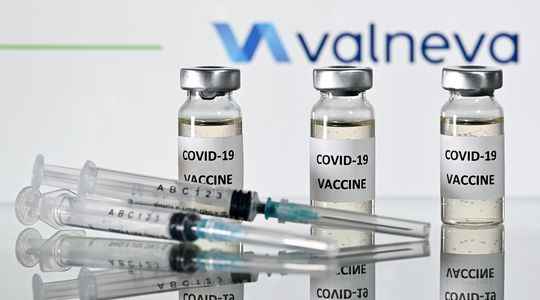Will the vaccine from the Franco-Austrian laboratory Valneva find a place in the United Kingdom’s vaccination strategy? This Thursday, April 14, the British drug regulator, the MHRA, gave the green light to this new vaccine against Covid-19, the sixth to be authorized in the country. Since the start of the epidemic, those from AstraZeneca, Pfizer, Moderna, the single-dose Janssen (Johnson & Johnson) and Novavax can be used. “The Independent Commission for Medicinal Products for Human Use and its expert task force on Covid-19 have carefully reviewed the available evidence and (…) the benefit/risk ratio is positive,” said Professor Munir Pirmohamed, chairman of this commission, quoted in the press release. It can be used in people aged 18 to 50, with the first and second doses taken at least 28 days apart.
Based on a technology considered to be very “classic”, this vaccine uses an inactivated virus, i.e. a harmless reproduction of Sars-CoV-2, capable of generating a more global immune response than with a vaccine targeting the Spike protein alone. viruses (such as messenger RNA vaccines). “It is a process which can be interesting in theory because it could make it possible to promote the response to variants but for the moment, we have no data which would make it possible to affirm it”, nuance Odile Launay, infectiologist and coordinator at the Cochin-Pasteur vaccinology center in Paris.
The Valneva laboratory, whose head office is in Saint-Herblain, in Loire-Atlantique, had already received authorization for the emergency use of this vaccine in the Kingdom of Bahrain, which bought a million doses from it. The laboratory also signed an agreement last November with the European Commission for the supply of a maximum of 60 million doses over two years in 2022 and 2023.
An interesting alternative according to the laboratory
This time, the British marketing authorization opens a new chapter for these injections whose history is punctuated with difficulties and twists. In September, when the United Kingdom had reached an agreement with the laboratory for the supply of 100 million doses, the Franco-Austrian company announced “to have received a notice of termination” from the government of Boris Johnson, alleging a breach by Valneva of its obligations.
It will now be necessary for the vaccine to find its audience, while the authorization only concerns primary vaccination, and more than 92% of the population aged 12 and over has already received a first dose of vaccine. A constraint which will not prevent the laboratory from selling its product correctly according to Franck Grimaud, its managing director: “We are absolutely convinced that the market will become a little like that of the flu, both public and private, depending countries. We already have networks of pharmacies in the United Kingdom which have signaled that they have an interest in our vaccine”, he explained to AFP. The group believes above all that its approval “could pave the way for the availability of an alternative vaccine solution for the British population”, while counting on the reluctance to vaccinate with messenger RNA vaccines in particular.
Low efficiency
Within the European Union, the Medicines Agency (EMA) has yet to issue its opinion. For this, the vaccine will have to demonstrate its effectiveness. An obstacle that remains to be overcome while previous inactivated virus vaccines, such as Sinovac in China in particular, have shown poor performance against Covid-19. “We have very little comparative data with other vaccine platforms, and in particular other inactivated vaccines, Valneva’s vaccine uses a different adjuvant from that of Sinovac, can that make a difference in terms of efficacy? will still have to be proven”, evokes Odile Launay.
Finally, if Valneva hopes one day to be able to position this vaccine as a booster dose, there are still many steps. A new authorization will have to be requested for this particular slot, both from the British and European authorities. A heterologous vaccination (i.e. with two vaccines with different modes of action) has sometimes shown greater efficacy than two similar vaccines, but nothing today says that this will be the case for Valneva.
A finding that should further exclude this vaccine, yet partially developed in France, from the national vaccination strategy. “The huge problem with this product is that we do not currently see what we can do with it, its marketing authorization is restricted to primary vaccination and I do not see why those who have refused previous vaccines would no longer accept this one”, notes a specialist in vaccination strategy. Everything suggests that the next vaccine champion should not immediately be French.
